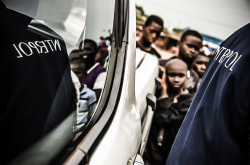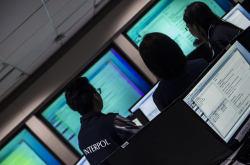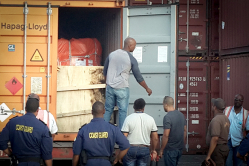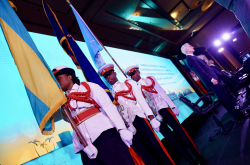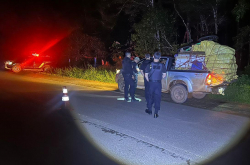Timeframe: April 2023- September 2025
Budget: EUR 1.7 million
Donor: Global Affairs Canada
The situation
Organized criminal groups take advantage of the most vulnerable people for profit, with a complete disregard for human safety and dignity. Human trafficking and migrant smuggling are low-risk, high-profit criminal businesses that increasingly employ sophisticated and technological methods to expand their reach.
Human trafficking and migrant smuggling are also connected to other types of organized crime including terrorism, cybercrime, trafficking in illicit goods and document fraud.
Countries in Latin America and the Caribbean serve as territories of origin, transit, and destination for these crimes.
Human trafficking and migrant smuggling have been fuelled by factors such as COVID-19 and new technologies that help criminals stay largely undetected. The pandemic has also led to an increase in irregular migration which places migrants, particularly women, and girls at risk of trafficking and exploitation.
Project aims
The overall objective of Project Turquesa is to identify cases of human trafficking and migrant smuggling and dismantle the organized criminal groups responsible. It will do this by:
- Promoting interagency and international cooperation;
- Investigating and prosecuting human trafficking and migrant smuggling cases;
- Ensuring full respect for the rights of smuggled migrants and victims of human trafficking.
Given that human trafficking and migrant smuggling are highly gendered crimes that affect men, women, and children differently, gender considerations will be mainstreamed throughout the project.
Project TURQUESA will be a two and half year’s joint initiative, implemented by INTERPOL and the United Nations Office on Drugs and Crime (UNODC).
Project activities
The project is made up of three pillars:
- Criminal Analysis. This pillar will help increase understanding of the routes, trends, modus operandi and context of migrant smuggling and trafficking in persons. The results of this research will be used to inform investigations, operations, and prosecutions.
- Capacity building. A 2-week long learning program will be delivered to a number of participants (law enforcement officials, prosecutors, and judges) on specialized topics including the rights of smuggled migrants and victims of trafficking. The program will enhance the skills of participants, allowing them to become mentors.
- Investigative and operational support. The project will work to advance transnational investigations and operations through INTERPOL’s police capabilities and tools. The project will also leverage specialized networks to foster coordination on cases of human trafficking and migrant smuggling.
The existing networks include:
- INTERPOL’s Human Trafficking Experts Group (HTEG)
- INTERPOL’s Specialized Operational Network (ISON) against Migrant Smuggling
- Ibero-American Network of Prosecutors on Trafficking in Persons and Migrant Smuggling (REDTRAM)
Related documents

Related news
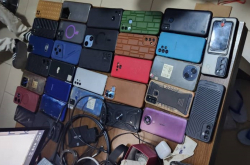
260 suspected scammers arrested in pan-African cybercrime operation
26 September 2025




